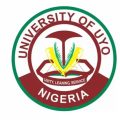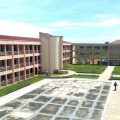
List of Courses Offered in UNIUYO 2024/2025 Updated
List of Courses Offered in UNIUYO
Are you aspiring to study at the University of Uyo? Do you wish to apply for a course at the University of Uyo UNIUYO but do not know which course to choose? Well, this article will show you a list of courses offered in UNIUYO.
Are you interested in knowing the list of courses offered in the University of Uyo? Then read this article to the very end.
The University of Uyo
The University of Uyo is a Nigerian federal university located in Uyo, Akwa Ibom State. It offers a wide range of undergraduate and postgraduate courses across different disciplines. Here is a list of some of the courses offered at the University of Uyo:
List of Courses Offered in UNIUYO
- Accounting
- Agricultural Economics and Extension
- Agricultural Engineering
- Agricultural Science and Education
- Animal Science
- Architecture
- Banking and Finance
- Biochemistry
- Botany and Ecological Studies
- Building
- Business Administration
- Chemical Engineering
- Chemistry
- Civil Engineering
- Communication Arts
- Computer Engineering
- Computer Science
- Curriculum Studies and Educational Technology
- Economics
- Education and Biology
- Education and Chemistry
- Education and Economics
- Education and Efik/Ibibio
- Education and English Language
- Education and Fine Arts
- Education and French
- Education and Geography
- Education and History
- Education and Integrated Science
- Education and Mathematics
- Education
Possible Careers for the Courses Offered in UNIUYO
- Accounting: This course focuses on the principles and practices of financial accounting, management accounting, auditing, and taxation. Graduates can pursue careers as accountants, auditors, financial analysts, and tax consultants, or work in financial management roles in various industries and organizations.
- Agricultural Economics and Extension: This course combines agricultural science with economics and emphasizes the application of economic principles to agricultural production, marketing, and rural development. Graduates can work in agricultural research, policy analysis, rural development projects, agribusiness management, or agricultural extension services.
- Agricultural Engineering: This field involves the application of engineering principles and technology to agricultural production, processing, and farm machinery. Graduates can work as agricultural engineers, designing and developing farm machinery, and irrigation systems, and implementing sustainable agricultural practices.
- Agricultural Science and Education: This program prepares students to become agricultural science teachers. Graduates can work in secondary schools, colleges of education, or agricultural research institutions, imparting knowledge and skills related to crop production, animal husbandry, and agricultural techniques.
- Animal Science: This course focuses on the study of animal biology, nutrition, breeding, and management. Graduates can work in livestock farming, animal production, research, or in animal health and nutrition companies.
- Architecture: Architecture involves the design, planning, and construction of buildings and other structures. Graduates can work as architects in architectural firms, construction companies, and real estate development firms, or pursue careers in urban planning and design.
- Banking and Finance: This course covers banking operations, financial management, investment analysis, and risk management. Graduates can work in banks, financial institutions, and investment firms, or pursue careers in corporate finance, financial analysis, or financial consulting.
- Biochemistry: Biochemistry explores the chemical processes and molecular structures of biological systems. Graduates can work in research laboratories, pharmaceutical companies, and biotechnology firms, or pursue careers in healthcare, forensic science, or environmental analysis.
- Botany and Ecological Studies: This course focuses on the study of plants, their classification, physiology, and interactions with the environment. Graduates can work in botanical gardens, environmental conservation organizations, and research institutions, or pursue careers in plant breeding, agriculture, or environmental consulting.
- Building: Building is a discipline that encompasses the planning, construction, and management of structures. Graduates can work in construction companies, architectural firms, and real estate development companies, or pursue careers in project management and construction supervision.
- Business Administration: Business Administration covers various aspects of business management, including marketing, finance, human resources, and strategic planning. Graduates can work in management positions in corporations, government agencies, and non-profit organizations, or start their own businesses.
- Chemical Engineering: Chemical Engineering involves the application of chemistry and engineering principles to the design and operation of chemical processes. Graduates can work in industries such as oil and gas, pharmaceuticals, and food processing, or pursue careers in research and development, process design, or environmental engineering.
- Chemistry: Chemistry focuses on the study of matter, its properties, composition, and reactions. Graduates can work in research laboratories, chemical manufacturing companies, and pharmaceutical companies, or pursue careers in quality control, analytical chemistry, or environmental testing.
- Civil Engineering: Civil Engineering deals with the design, construction, and maintenance of infrastructure such as roads, bridges, buildings, and water supply systems. Graduates can work in engineering consulting firms, construction companies, and government agencies, or pursue careers in project management, structural design, or transportation planning.
- Communication Arts: Communication Arts encompasses the study of communication theory, media production, journalism, and public relations. Graduates can work in media organizations, advertising agencies, and public relations firms, or pursue careers in journalism, broadcasting, or corporate communications.
- Computer Engineering: Computer Engineering combines principles of electrical engineering and computer science to design and develop computer systems and hardware. Graduates can work in technology companies, software development firms, and telecommunications companies, or pursue careers in computer hardware design, network engineering, or embedded systems development.
- Computer Science: Computer Science focuses on the study of computer systems, algorithms, programming languages, and software development. Graduates can work in software companies, IT consulting firms, and research institutions, or pursue careers in software engineering, data analysis, cybersecurity, or artificial intelligence.
- Curriculum Studies and Educational Technology: This course prepares students to become curriculum developers, educational technology specialists, or instructional designers. Graduates can work in educational institutions, government agencies, or private organizations, developing educational materials, implementing technology in education, or conducting research on curriculum development.
- Economics: Economics examines the production, distribution, and consumption of goods and services. Graduates can work in banks, financial institutions, government agencies, and research institutions, or pursue careers in economic analysis, policy research, or economic consulting.
- Education and Biology: This program combines education and biology, preparing students to become biology teachers. Graduates can work in secondary schools, or colleges of education, or pursue careers in educational administration, curriculum development, or educational research.
- Education and Chemistry: This program combines education and chemistry, preparing students to become chemistry teachers. Graduates can work in secondary schools, or colleges of education, or pursue careers in educational administration, curriculum development, or educational research.
- Education and Economics: This program combines education and economics, preparing students to become economics teachers. Graduates can work in secondary schools, or colleges of education, or pursue careers in educational administration, curriculum development, or educational research.
- Education and Efik/Ibibio: This program combines education and Efik/Ibibio, preparing students to become Efik/Ibibio language teachers. Graduates can work in secondary schools, or colleges of education, or pursue careers in educational administration, curriculum development, or educational research.
- Education and English Language: This program combines education and English language, preparing students to become English language teachers. Graduates can work in secondary schools, or colleges of education, or pursue careers in educational administration, curriculum development, or educational research.
- Education and Fine Arts: This program combines education and fine arts, preparing students to become fine arts teachers. Graduates can work in secondary schools, or colleges of education, or pursue careers in educational administration, curriculum development, or educational research.
- Education and French: This program combines education and French, preparing students to become French language teachers. Graduates can work in secondary schools, or colleges of education, or pursue careers in educational administration, curriculum development, or educational research.
- Education and Geography: This program combines education and geography, preparing students to become geography teachers. Graduates can work in secondary schools, or colleges of education, or pursue careers in educational administration, curriculum development, or educational research.
- Education and History: This program combines education and history, preparing students to become history teachers. Graduates can work in secondary schools, or colleges of education, or pursue careers in educational administration, curriculum development, or educational research.
- Education and Integrated Science: This program combines education and integrated science, preparing students to become integrated science teachers. Graduates can work in secondary schools, or colleges of education, or pursue careers in educational administration, curriculum development, or educational research.
- Education and Mathematics: This program combines education and mathematics, preparing students to become mathematics teachers. Graduates can work in secondary schools, or colleges of education, or pursue careers in educational administration, curriculum development, or educational research.
- Education and Physics: This program combines education and physics, preparing students to become physics teachers. Graduates can work in secondary schools, or colleges of education, or pursue careers in educational administration, curriculum development, or educational research.
- Education and Political Science: This program combines education and political science, preparing students to become political science teachers. Graduates can work in secondary schools, or colleges of education, or pursue careers in educational administration, curriculum development, or educational research.
- Education and Religious Studies: This program combines education and religious studies, preparing students to become religious studies teachers. Graduates can work in secondary schools, or colleges of education, or pursue careers in educational administration, curriculum development, or educational research.
- Education and Social Studies: This program combines education and social studies, preparing students to become social studies teachers. Graduates can work in secondary schools, or colleges of education, or pursue careers in educational administration, curriculum development, or educational research.
- Education and Social Studies/Geography: This program combines education and social studies/geography, preparing students to become social studies/geography teachers. Graduates can work in secondary schools, or colleges of education, or pursue careers in educational administration, curriculum development, or educational research.
- Education and Social Studies/History: This program combines education and social studies/history, preparing students to become social studies/history teachers. Graduates can work in secondary schools, or colleges of education, or pursue careers in educational administration, curriculum development, or educational research.
- Education and Social Studies/Political Science: This program combines education and social studies/political science, preparing students to become social studies/political science teachers. Graduates can work in secondary schools, or colleges of education, or pursue careers in educational administration, curriculum development, or educational research.
- Education and Social Studies/Religious Studies: This program combines education and social studies/religious studies, preparing students to become social studies/religious studies teachers. Graduates can work in secondary schools, or colleges of education, or pursue careers in educational administration, curriculum development, or educational research.
- Education and Sociology: This program combines education and sociology, preparing students to become sociology teachers. Graduates can work in secondary schools, or colleges of education, or pursue careers in educational administration, curriculum development, or educational research.
- Education Arts: This program focuses on the teaching and promotion of arts education. Graduates can work in secondary schools, and colleges of education, or pursue careers in arts administration, arts advocacy, or arts education research.
- Efik/Ibibio: This course focuses on the study of the Efik/Ibibio language, culture, and history. Graduates can work as language specialists, and cultural heritage consultants, or pursue careers in translation, interpretation, or language preservation.
- Electrical/Electronics Engineering: This field focuses on the study of electrical systems, electronics, and telecommunications. Graduates can work in engineering firms, telecommunications companies, power generation, and distribution companies, or pursue careers in electrical design, control systems, or telecommunications engineering.
- English: English involves the study of English language, literature, and linguistics. Graduates can work in educational institutions, publishing houses, and media organizations, or pursue careers in writing, editing, journalism, or language instruction.
- Estate Management: Estate Management covers the valuation, development, and management of real estate properties. Graduates can work in real estate firms, property management companies, and construction companies, or pursue careers in property valuation, facility management, or real estate consultancy.
- Fine and Industrial Arts: This course focuses on the study and practice of fine arts, sculpture, painting, ceramics, and industrial design. Graduates can work as artists, art instructors, and gallery curators, or pursue careers in art therapy, art restoration, or art entrepreneurship.
- Fisheries and Aquaculture: This course covers the science and management of fisheries and aquaculture systems. Graduates can work in fisheries research institutions, fish farms, and environmental organizations, or pursue careers in aquaculture production, fisheries management, or marine conservation.
- Food Engineering: Food Engineering involves the application of engineering principles to the processing, preservation, and packaging of food products. Graduates can work in food processing companies, research institutions, and quality control laboratories, or pursue careers in food process engineering, product development, or food safety management.
- Forestry and Wildlife: This course focuses on the study and management of forests, wildlife, and natural resources. Graduates can work in forestry departments, wildlife conservation organizations, and environmental consulting firms, or pursue careers in forest management, wildlife conservation, or environmental impact assessment.
- French: French involves the study of the French language, literature, and culture. Graduates can work in educational institutions, translation agencies, diplomatic missions, or pursue careers in language instruction, translation, and interpretation, or cultural exchange programs.
- Geography and Regional Planning: Geography and Regional Planning focuses on the study of the Earth’s physical features, human populations, and spatial analysis. Graduates can work in urban planning departments, environmental agencies, and research institutions, or pursue careers in regional planning, environmental management, or geographical information systems (GIS).
- Geology: Geology involves the study of the Earth’s solid materials, minerals, and geological processes. Graduates can work in mining companies, oil and gas exploration firms, and environmental consulting companies, or pursue careers in geotechnical engineering, mineral exploration, or environmental geology.
- Guidance and Counselling: This course prepares students to become guidance counselors, providing support and guidance to individuals facing personal, social, or academic challenges. Graduates can work in schools, counseling centers, and rehabilitation centers, or pursue careers in mental health counseling, career counseling, or student advising.
- Health Education: Health Education focuses on promoting health and preventing diseases through education and awareness programs. Graduates can work in healthcare organizations, non-profit agencies, and community health centers, or pursue careers in health promotion, public health advocacy, or health education research.
- History and International Studies: This course combines the study of history with an understanding of global affairs and international relations. Graduates can work in research institutions, governmental agencies, and non-governmental organizations (NGOs), or pursue careers in diplomacy, international development, or historical research.
- Home Economics: Home Economics covers various aspects of household management, including nutrition, textiles, and family resource management. Graduates can work in educational institutions, or research organizations, or pursue careers in family counseling, nutrition consulting, or consumer advocacy.
- Hospitality and Tourism Management: This course focuses on the management and operation of hospitality and tourism businesses, such as hotels, resorts, restaurants, and travel agencies. Graduates can work in the hospitality industry, tourism boards, event management companies, or pursue careers in hotel management, tourism marketing, or destination planning.
- Industrial Chemistry: Industrial Chemistry applies chemical principles to industrial processes and product development. Graduates can work in chemical manufacturing companies, pharmaceutical companies, and quality control laboratories, or pursue careers in industrial research, chemical process engineering, or product formulation.
- Insurance: Insurance involves the study of risk management and the principles of insurance coverage. Graduates can work in insurance companies, risk assessment firms, and financial institutions, or pursue careers in underwriting, claims management, or insurance consulting.
- Law: Law involves the study of legal principles, legislation, and the judicial system. Graduates can work as lawyers in law firms, corporate legal departments, and government agencies, or pursue careers in legal research, advocacy, or judicial services.
- Library Science: Library Science focuses on the organization, management, and dissemination of information resources. Graduates can work in libraries, information centers, and educational institutions, or pursue careers in library management, information systems, or archival research.
Did you find this article useful? Leave a comment below.
Related Articles:
-
- UNIUYO Diploma Admission Form
- UNIUYO Post UTME Screening Form
- UNIUYO Hostel Application Form
- UNIUYO Final Year Clearance For NYSC
- UNIUYO SCE Admission Form
- UNIUYO Post Graduate Admission Form
- UNIUYO Courses, Cut-off mark and JAMB Subject Combination
- UNIUYO Suspension Form
- UNIUYO Part-Time Application Form
- UNIUYO Academic Calendar
- UNIUYO Admission List
- UNIUYO School Fees for Fresh and Returning Students
- UNIUYO Screening Application Form
- UNIUYO Student Portal
- UNIUYO Direct Entry Admission Form
- UNIUYO Supplementary Admission List
- UNIUYO Resumption Date for Freshers and Returning Students
- List of Courses Offered in UNIUYO
- Uniuyo Recruitment and Job Vacancies











